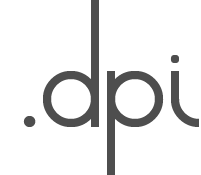Issue 29 of .dpi explores intersections of art, activism, and feminism in Montreal over four decades, from the founding of La Centrale Galerie Powerhouse in 1974 to contemporary practices in 2014. This issue considers local networks and histories, and aims to situate these in wider contexts of feminist discourse. In this collection of articles, .dpi editors present a selection of projects, actions, and movements that contribute to telling a history of socially engaged art practices in Montreal.
This year La Centrale Galerie Powerhouse looks back on 40 years since its beginning as Canada’s first feminist artist-run centre. In her article, Jen Leigh Fisher, the centre’s current artistic coordinator, questions how historical feminist strategies influence contemporary art practices. Using the organization’s archives as a starting point, invited artists will reflect on these questions over the course of this year.
Julie Alary Lavallée writes about the 1976 interviews conducted by art historian and curator Rose-Marie Arbour for Télé-visite au Musée, interviews intended for television but never aired which are now housed in Vidéographe’s online catalogue Vithèque. Alary Lavallée draws parallels between the distribution of art in 1976 and 2013 in Montreal and the intertwined issues of economics and public interest that remain as important today as ever.
Claire Ellen Paquet interviews Montreal artist Jessica MacCormack about her digital collage work and her investigations into identity and community in social media platforms such as Facebook.
Esther Bourdages interviewed Karine Philibert, a member of a coalition of health professionals against tuition increases who were active during Quebec’s student strikes of spring 2012. Philibert contributed to the recently published book Les femmes changent la lutte. Au cœur du printemps québécois, published by éditions du remue-ménage.
Community based practices are central to the work of RECAA (Ressources ethnoculturelles contre l’abus envers les aîné(e)s / Respecting Elders Communities against Abuse), a collective whose long term project “Activist Ageing and Digital Media” uses new media technologies to raise awareness of elder mistreatment and to develop strategies for abuse prevention. Katja Melzer interviewed members of RECAA about their work in ethnocultural communities in Montreal.
An interview by Stephanie Tripp with Studio XX’s Stéphanie Lagueux about the Matricules archive discusses the development of this project and its role in documenting feminist art. Launched in 2008, Matricules provides a structure through which to trace networks of artists, events, writing and works of art since the founding of Studio XX in 1996 and acts as a site of inquiry for artists and researchers wishing to interact with and interpret the holdings.
Making feminist art histories widely known is a critical endeavour. As Amber Berson notes, the lack of female Wikipedia editors and the underrepresentation of art and feminist discourse in Wikipedia overall is problematic. Her article on the first worldwide Art and Feminism Wikipedia Edit-a-thon describes how an international network across 30 cities decided to tackle these problems by creating local events to support new Wikipedia editors and to collectively work on articles.
The development of the Montreal hackerspace FemHack is described by Christina Haralanova and Sophie Toupin. They situate FemHack as a local reflection of an emerging international movement of feminist and social justice oriented hackerspaces, one that is gaining traction in the material world by creating better conditions for women to evolve in and with tech communities.
Finally, the F.A.R.D. collective (Féministes anti-racistes détonant.e.s) responds to one of the most controversial bills to be put forward by the minority governing party in Quebec, the Charter of Quebec Values. By providing copyright-free posters to download and print, they aim to increase the visibility of opposition to the Charter.
